-
 +40 +16
+40 +16Autism could be diagnosed with stool sample, scientists say
Researchers found differences in the gut microbes of autistic people, raising hopes for faster diagnosis
-
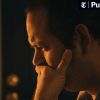 +1 +1
+1 +1‘The Battery’s Dead’: Burnout Looks Different in Autistic Adults
Though little studied, exhaustion among people with autism has become its own pandemic.
-
 +25 +3
+25 +3Children with autism show improvement after being treated with cannabidiol-rich medicinal cannabis
A study of children with autism spectrum disorders in Israel reported significant improvements in their social communication abilities after six months of treatment with cannabidiol-rich cannabis oil. Additionally, parents reported a reduction in restrictive and repetitive behaviors of children. Children’s cognitive scores were not changed. The study was published in Translational Psychiatry.
-
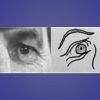 +20 +3
+20 +3Autistic people outperform neurotypicals in a cartoon version of an emotion recognition task
People who on the autism spectrum are frequently thought of as lacking the ability to accurately recognize the emotions of others, but is that true? A study published in Autism Research suggests that when certain differences are accounted for, individuals with autism can actually outperform neurotypicals.
-
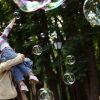 +15 +2
+15 +2Study Suggests Autism Is Being Overdiagnosed
The over-diagnosis may occur in as many as 9 percent of children, U.S. government researchers reported Friday. Early therapy could help others.
-
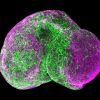 +2 +1
+2 +1Lab-Grown Brain Experiment Reverses The Effects of Autism-Linked Gene
Thanks to lab-grown brains produced from human cells, scientists have discovered alterations in neurological structure that potentially underpin the autism spectrum illness known as Pitt Hopkins syndrome.
-
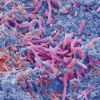 +11 +1
+11 +1Autism affects the microbiome, not the other way around
Microbiome composition is associated with dietary choices, not a diagnosis of autism.
-
 +11 +1
+11 +1Apple Researching Ways to Use iPhone Camera to Detect Childhood Autism
Apple is reportedly researching ways to use the cameras inside of the iPhone to detect childhood autism, aiming to use data from the camera to observe a child's behavior that could be used for early diagnosis, according to a new report from The Wall Street Journal.
-
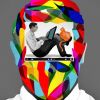 +23 +5
+23 +5As Remote Work Becomes the Norm, Vast New Possibilities Open for Autistic People
I’ve long worried about how my autistic son will fare when he enters the workforce. He’s got the sort of autism that used to be known as Asperger’s syndrome: On the one hand, he’s extraordinarily brilliant, incredibly friendly and can do anything he sets his mind to. Yet his sensory challenges and unique style of social interactions mean that the traditional workplace could be difficult for him. From the overload caused by ambient noise and fluorescent lights to the anxiety of constant conversation, there is a lot about conventional offices that can be challenging for people on the autism spectrum.
-
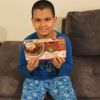 +26 +5
+26 +5B.C. boy with autism who only eats brand of discontinued waffles gets home recipe
The nine-year-old has autism along with extreme oral aversion and complex eating challenges and will eat virtually nothing but Nature's Path Maple Cinnamon waffles.
-
 +9 +1
+9 +1Accidentally Autistic: The Queen’s Gambit
What makes Beth autistic? It’s not any one thing, but a multitude of small things. She’s so strongly coded that autistics can easily identify with her.
-
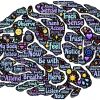 +16 +3
+16 +3Risks for autism and depression are higher if one’s mother was in hospital with an infection during pregnancy. - Health Tips
Risks for autism and depression are higher if one’s mother was in hospital with an infection during pregnancy. This is shown by a major Swedish observational study of nearly 1.8 million children.
-
 +14 +3
+14 +3Washington Post's depictions of autism shift from "cause and cure" to acceptance, study finds
The Washington Post's depiction of autism has shifted over the years from a focus on "cause and cure" toward one of acceptance and accommodation, say the authors of a study that examined 315 articles published from 2007 to 2017.
-
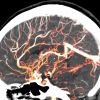 +11 +5
+11 +5Excess of Immune Cells Found in Brains of People with Autism
An accumulation of T cells and astrocytes in postmortem brain tissue hints at possible autoimmune origins for many cases of autism.
-
 +18 +2
+18 +2Strangers save autistic girl's birthday party
The father of an autistic girl said he was "blown away" when strangers responded to a desperate plea to help his daughter celebrate her birthday. Remi was so upset when only two children turned up for her fifth birthday party that she asked her mother "where are all my friends?"
-
 +15 +3
+15 +3Why the right’s usual smears don’t work on Greta Thunberg
She keeps the focus on science, and they hate it.
-
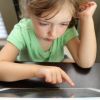 +9 +1
+9 +1Children with Autism More Able to Read Thoughts and Feelings Than Previously Thought | Psychreg
The ability of people with autism to read what someone is feeling or thinking by looking at their eyes and face may have been underestimated, according to research conducted by a developmental psychology expert from Kingston University.
-
 +18 +2
+18 +2Greta Thunberg responds to Asperger's critics: 'It's a superpower'
Greta Thunberg has spoken about her Asperger’s syndrome diagnosis after she was criticised over the condition, saying it makes her a “different”, but that she considers it a “superpower”. Thunberg, the public face of the school climate strike movement said on Twitter that before she started her climate action campaign she had “no energy, no friends and I didn’t speak to anyone. I just sat alone at home, with an eating disorder.”
-
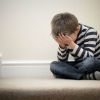 +19 +3
+19 +3Study finds children with autism more likely to be bullied at home and at school
A major new study has found children with autism are more likely to be bullied by both their siblings and their peers, meaning that when they return from school, they have no respite from victimisation.
-
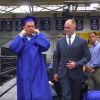 +18 +4
+18 +4High school students offer a silent ovation while a classmate with autism receives his diploma
At his high school graduation, Jack Higgins approached the stage to receive his diploma with his fingers in his ears to block what he thought would be applause and cheers. Instead, he was met by silence.
Submit a link
Start a discussion




















